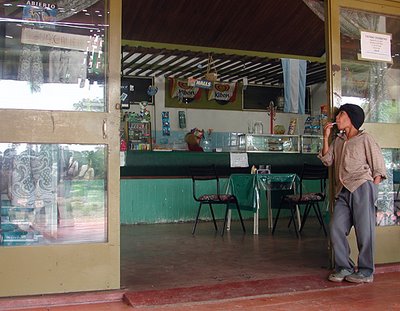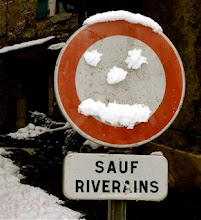
I've become used to tagging words feminine with that "extra e":
Il est américain. Elle est américaine. He/She is american.
Il est grand. Elle est grande. He/She is tall.
Il est brun. Elle est brune. He/She is brown-haired.
L'exception: he and I are both jeune et mince (among other exceptional
qualities). No changes there - one "e", included for both.
So it "made sense" to me that in the passé composé I would have to add that "extra e":
Il est arrivé. Elle est arrivée. He/She arrived/has arrived/did arrive.
Il est parti. Elle est partie. He/She left/has left/did leave.
But it makes no sense to me that if the helping verb is "avoir" to have - that suddenly, the "extra e" is nowhere to be found:
Il/Elle a regardé. He/She looked/has looked/did look.
Il/Elle a mangé. He/She ate/has eaten/did eat.
I won't be surprised to find that "extra e" elsewhere ... hopefully, though in another language. One I'm conveniently not studying now.
La photo (merci monsieur_foufou): Waiting somewhere in Misiones, Argentina. En Juin 2004.





No comments:
Post a Comment